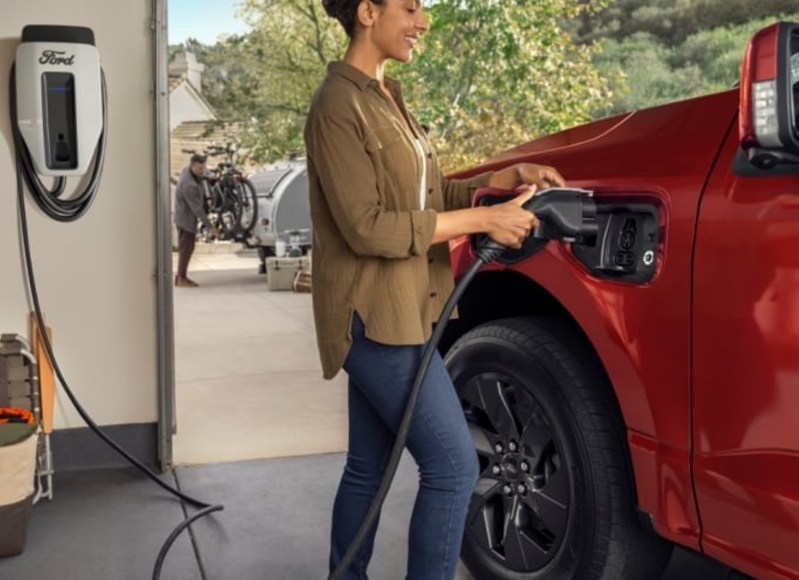
You may have heard of V2H (vehicle-to-home) power transfer. The most commonly touted benefit is accessing energy stored in an EV battery as a backup power source during power outages. Further examples of connecting homes and vehicles to manage energy availability, usage, and cost are conceptually interesting. However, the logistics of making it all work have been out of reach. Ford and Resideo Technologies recently announced a collaboration to study how consumers could benefit from V2H connections.
The joint project is called the EV-Home Power Partnership. Resideo and Ford will explore V2H home energy management, beginning with home heating and cooling, which is often the most costly category of home energy use. With Ford’s Intelligent Backup Technology, the Ford F-150 Lightning EV is ready for V2H. Resideo manufactures connected smart home monitoring and control devices, including smart thermostats under the Honeywell Home brand.

How can EV battery storage help manage home energy?
Studies vary, but 5% to 15% of U.S. households have backup generators for electrical power during outages. With Ford’s Intelligent Backup Technology, an F-150 Lightning with a fully charged battery could theoretically power your home for two to three days. This technology only works if the truck is home and the battery has a fair amount of charge remaining. If an outage lasts longer than a few days, you have a cold house and a truck you can’t drive. However, according to the U.S. Department of Energy, the average home and business will lose power for about seven hours yearly.
Using an EV as a backup power source has additional advantages over a conventional gasoline or propane-powered generator, including cleaner energy generation and less noisy operation, so you won’t annoy your neighbors when you keep a generator running all night.
With a managed home and EV connection, consumers can save on energy costs in several ways and avoid the expense of installing a home generator. If energy costs vary during high-use periods, running your home electrical system with power from an EV rather than the electrical grid is a saving, especially if you charge the EV at night or when energy from the grid is the least expensive.

Resideo and Ford will simulate V2H energy management
The initial focus of the EV-Home Power Partnership is to evaluate the extent of energy savings using bi-directional EV charging and Resideo smart thermostats. The study will measure the effectiveness of automating home heating and cooling using electricity supplier Time-of-Use (TOU) rate structures. The study will also explore integrating renewable energy from home solar energy collection systems with the V2H connection.
As EVs with bi-directional charging become more common along with the energy management software to optimize the integration, the tantalizing potential of whole-home renewable energy systems that include EVs running effectively off the grid comes closer to reality.
Editors' Recommendations
- Polestar expands EV lineup with 3 new, more powerful models
- Want to buy an EV? Don’t – this is why you should lease an electric car instead
- New Ford F-150 Lightning Flash packs popular EV features into sub-$70k sticker price
- The Ford F-150 Lightning is finally getting this handy feature for EVs
- BMW, Ford, and Honda team up to solve the biggest problem with EV charging stations




